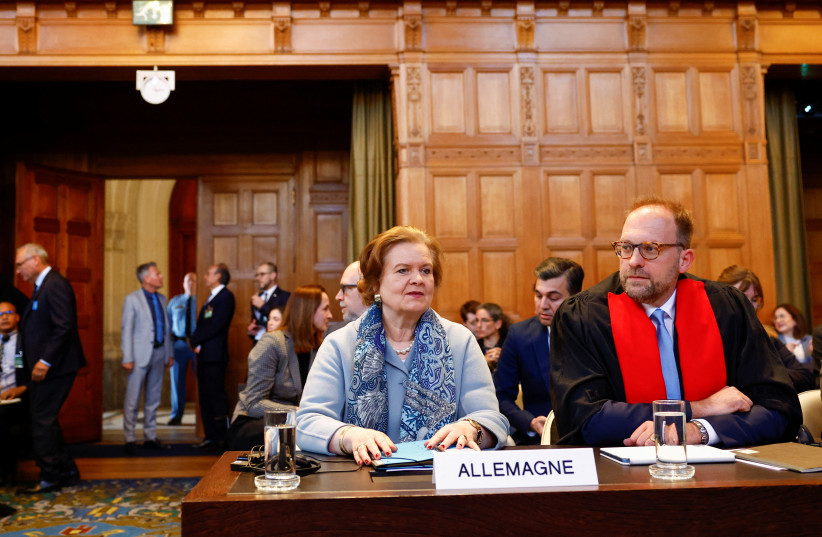The International Court of Justice ruled against issuing emergency orders to block German arms exports to Israel while expressing deep concern about “catastrophic living conditions in Gaza.”
But the court on Tuesday also rejected a German request to throw out the case, so it can now move forward.
Accusation made by Nicaragua
Nicaragua had asked the ICJ, also known as the World Court, to order Germany to halt military arms exports to Israel and to resume its funding of UNRWA, saying there was a serious risk of genocide in Gaza.
The court refused to issue any orders, saying that the current circumstances presented by Nicaragua were not such that the court needed to issue emergency measures.
The case, which could impact all arms sales to Israel, is being adjudicated alongside one filed by South Africa against Israel, on claims that the Jewish state was committing genocide against the Palestinian people..

When rejecting Nicaragua’s request for provisional measures Tuesday, the presiding judge, Nawaf Salam, added: “The court remains deeply concerned about the catastrophic living conditions of the Palestinians in the Gaza Strip, in particular, in view of the prolonged and widespread deprivation of food and other basic necessities to which they have been subjected.”
Nicaragua accuses Berlin of violating international humanitarian law and the 1948 Genocide Convention by continuing to supply Israel with arms after ICJ judges ruled in January that it was plausible Israel violated some rights guaranteed under the genocide convention during its assault on Gaza.
In reading the court’s conclusions, which were approved 15-1, Salam noted that Germany had significantly reduced its arms exports to Israel since the start of the war on October 7.
Israel had received €200 million of military material in October, which dropped to €24m. in November and €1m. in March of 2024.
In 98% of the cases German weaponry given to Israel since October 7 did not involve war weapons, Salam explained, adding that it had received items such as training ammunition and anti-tank weapons. Germany, he said, had yet to respond to Israel’s request from 2023 for tank ammunition.
Nicaragua had also demanded that the ICJ force Germany to resume its funding for UNRWA, the United Nations Relief and Works Agency, but Berlin has already done so, Salam said.
The main case will move forward, and the next step will be a chance for Germany to raise a preliminary objection to the court’s jurisdiction, a step which if successful, could put an end to the case.
Pro-Palestinian protesters outside the ICJ expressed disappointment over Tuesday’s verdict.
“I’m really scared that this is going to have consequences for other European states and other nations worldwide. They still supply weapons to Israel,” Melanie Uittenbosch, a protester, said.
Germany’s representative at the ICJ welcomed the ruling.
“We are complying with international law and we will continue to do so in the future,” Tania von Uslar-Gleichen told journalists.
It will likely take years before the ICJ reaches a final judgment in the case. The court has no way to enforce its rulings.
Separately, a spokesman for Berlin’s Administrative Court confirmed on Tuesday that it had asked the German government to explain the criteria whereby arms are supplied to Israel without violating international law. That move came after human rights groups challenged German export permits in court.
